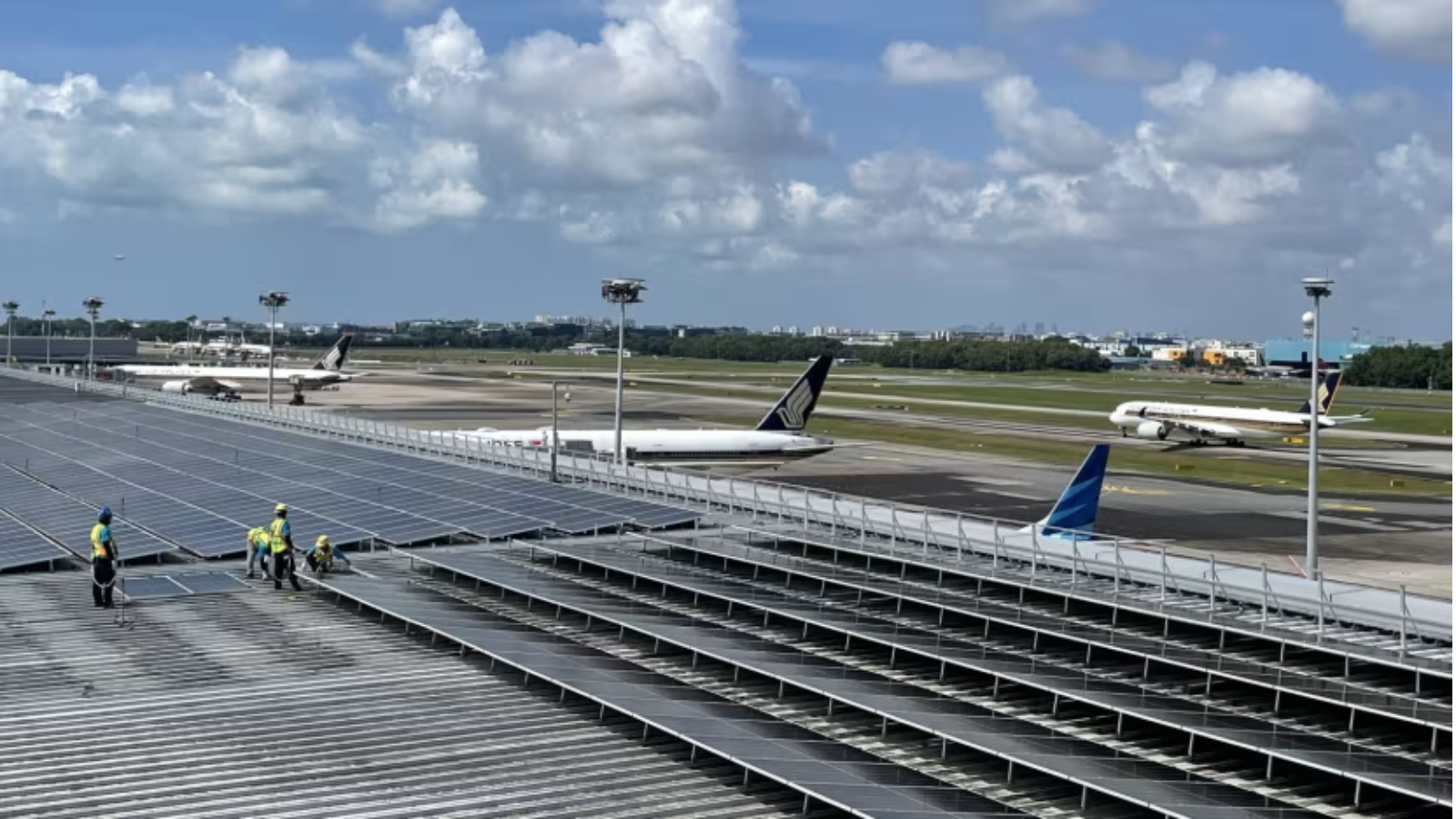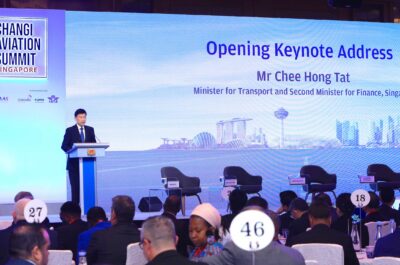Changi Airport partners with Keppel on a pioneering solar project to cut carbon emissions by 10%, powering over 10,000 homes and setting a new standard in aviation sustainability by 2025.
In a significant stride towards environmental sustainability, Changi Airport has commenced the ambitious installation of a comprehensive solar photovoltaic (PV) system across its premises. This initiative, a collaboration with Changi Airport Group (CAG) and global asset firm Keppel, marks a pivotal moment in the airport’s decarbonisation journey. Slated for completion in early 2025, this project is poised to establish Changi as the site of Singapore’s most extensive rooftop solar PV installation at a single location.
The solar PV system will span the roofs of passenger terminals, alongside airfield and cargo buildings operated by CAG. An additional installation will occupy a 4-hectare area within the airfield, strategically positioned away from aircraft operation zones. This initiative aligns with recommendations from a 2022 international expert panel, advocating for exploiting open spaces within the airfield for solar panel installation.
CAG has entrusted Keppel with the responsibility to design, construct, own, and manage the solar PV system at Changi Airport for a 25-year tenure. This project, with a combined generation capacity of 43 MW peak (MWp), comprises 38 MWp from rooftop installations and an additional 5 MWp from the airfield system.
The adoption of solar energy is expected to significantly diminish CAG’s carbon emissions—by approximately 10% of its 2019 consumption levels, equating to a reduction of around 20,000 tonnes annually. The generated solar energy will power over 10,000 four-room HDB flats each year, underscoring the project’s substantial impact on sustainable energy use.
The implementation of solar PV systems in an airport setting presents distinct challenges, diverging from conventional installations in commercial or residential contexts. Extensive simulation studies have been conducted to ensure the solar panels are optimally angled to maximize energy yield while mitigating potential glare or glint effects. Such reflections could compromise the visibility of air traffic controllers and pilots, thus posing risks to passenger safety.
Furthermore, the project’s execution and ongoing maintenance must adhere to stringent aviation safety and security protocols, a testament to the complexity of integrating renewable energy solutions within the aviation industry.
While the financial details of the solar PV project remain confidential due to commercial sensitivities, the initiative signifies a substantial investment in sustainable infrastructure. Upon completion, the systems will be integrated with Keppel’s operations nerve centre at Changi, facilitating real-time solar generation metrics and advanced fault detection capabilities to ensure seamless operation.
Additionally, a smaller-scale 640kWp solar PV system is set to be installed on the roof of the airport’s maintenance and storage centre, projected to halve the facility’s carbon emissions.
Changi Airport’s solar energy project exemplifies its commitment to environmental stewardship and sets a benchmark for sustainability within the global aviation sector. By harnessing renewable energy, Changi is paving the way for a greener future, demonstrating that large-scale infrastructure projects can effectively contribute to the global fight against climate change. This initiative serves as a model for airports worldwide, illustrating the feasibility and benefits of integrating solar power into their operations.
Vicky is the co-founder of TravelDailyNews Media Network where she is the Editor-in Chief. She is also responsible for the daily operation and the financial policy. She holds a Bachelor's degree in Tourism Business Administration from the Technical University of Athens and a Master in Business Administration (MBA) from the University of Wales. She has many years of both academic and industrial experience within the travel industry. She has written/edited numerous articles in various tourism magazines.























![[PR] PR_Ascott and Vimut Hospital_2024](https://www.traveldailynews.asia/wp-content/uploads/2024/04/PR-PR_Ascott-and-Vimut-Hospital_2024-400x265.jpg)






















































